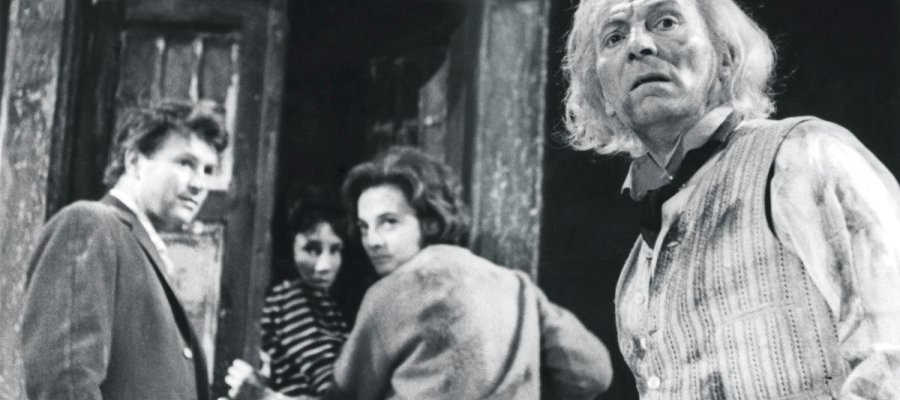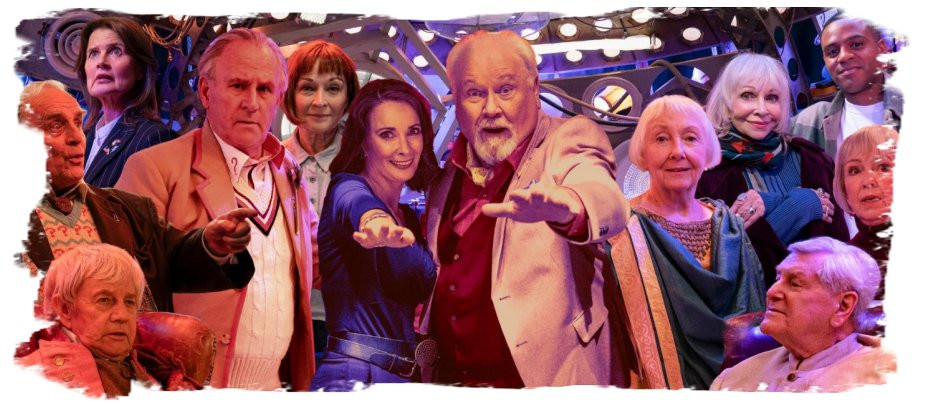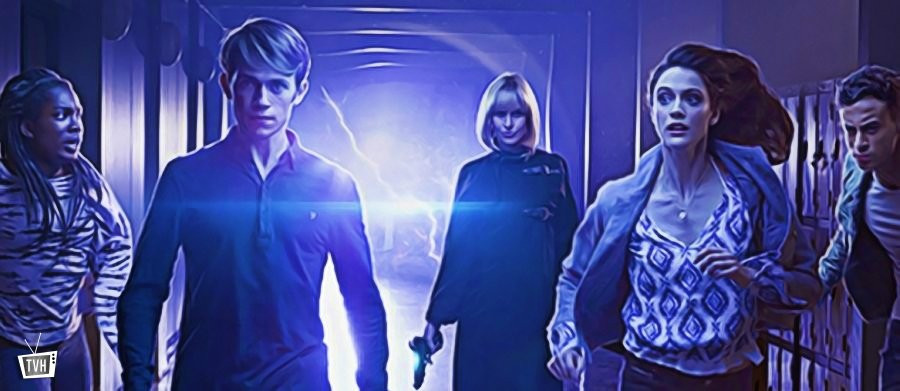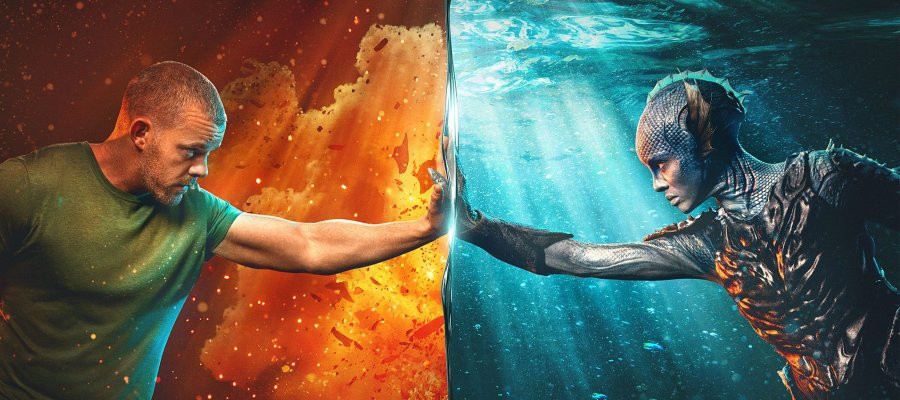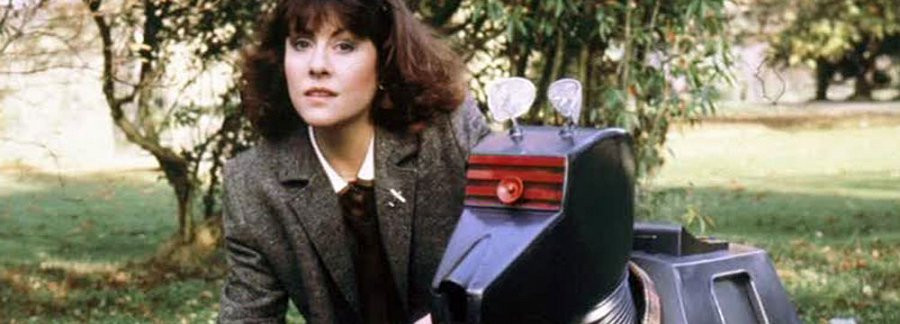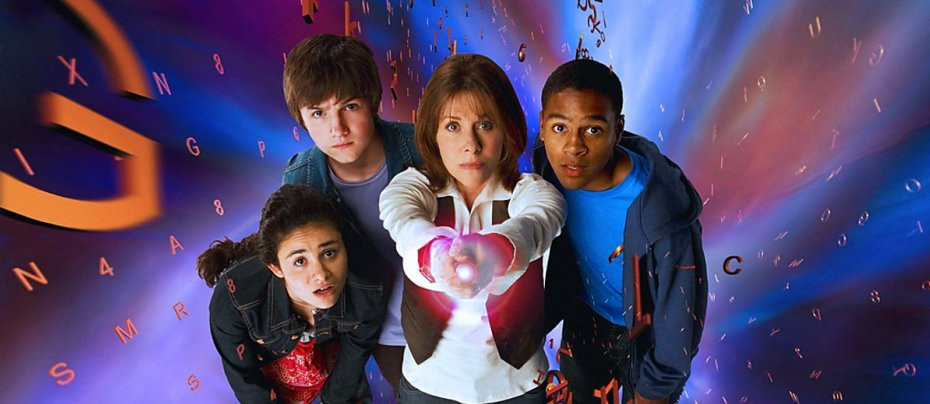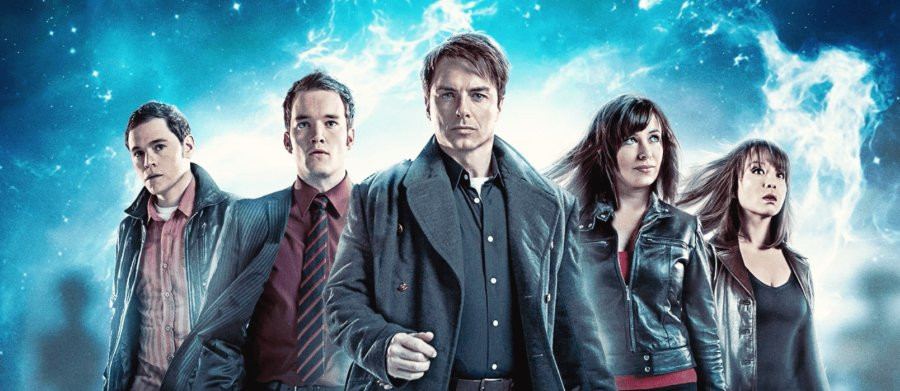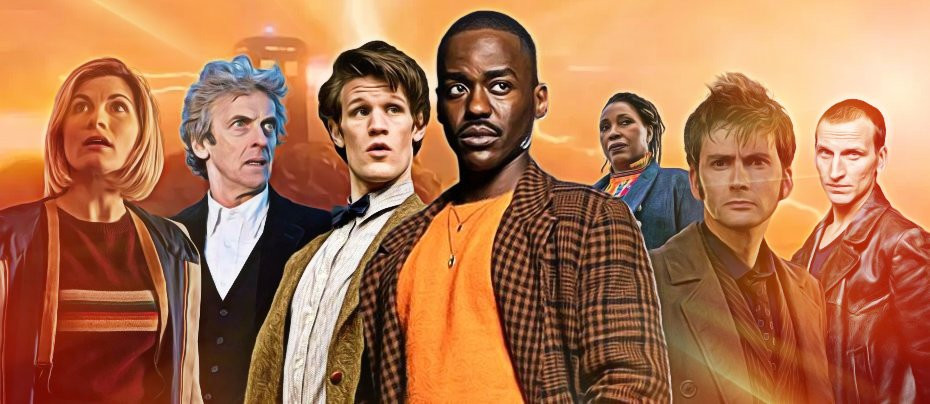The Colin Baker Era
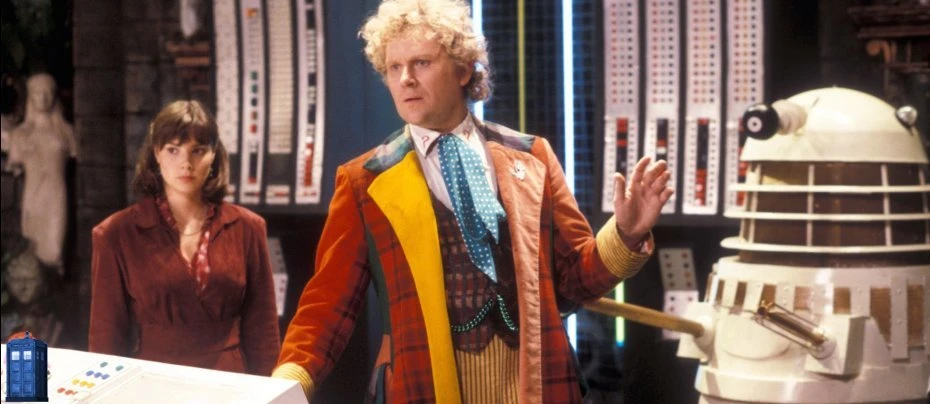
“There may be some critique of his debut story, but the stories that follow are true classics”
Colin Baker fan Joshua Nicholson puts forward his argument for reappraising an era of Doctor Who that was one of the most controversial in the classic series’ history.
The Sixth Doctor, portrayed by Colin Baker, graced our screens between the years 1984 and 1986. At the time, the Sixth Doctor’s adventures garnered mixed reviews from viewers. By and large, Colin Baker received good reviews for his performance with some criticism of certain storylines or production choices. This article will discuss the merits of Colin Baker’s tenure as the Doctor and why his portrayal should be viewed as one of the most successful of the “classic” era of Doctor Who (1963-1989, 1996).
Starting at the beginning of Colin Baker’s era, The Twin Dilemma does not generally receive good reviews. Over the years, fans have complained about the brash characterisation of the Sixth Doctor in the episode, a poorly written script, and, of course, the Doctor’s infamous attempted strangling of bewildered companion, Peri (Nicola Bryant). However, The Twin Dilemma, although not the best serial of the Sixth Doctor’s era by any means, did introduce a number of concepts that make the episode worthy of a special kind of appreciation.
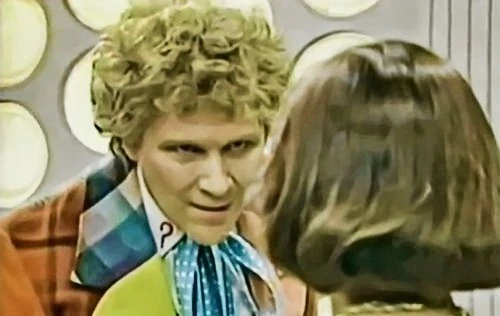
Firstly, it is important to remember that regeneration is incredibly traumatic to the Doctor’s body. Indeed, we see this instability post-regeneration with many Doctors to varying degrees. Colin Baker’s Sixth Doctor arguably suffers the worst post-regenerative sickness – his fits make him prone to angry and violent outbursts, delusions, and paranoia. Thus, whilst his attempted strangling of Peri may have turned some fans away from the Sixth Doctor in his first few minutes of screen-time, it is important to note that is something the Doctor was unable to control. Further, the Sixth incarnation of the Doctor is arguably the most successfully performed incarnation as regards Colin’s excellent portrayal of the Doctor’s alien side. The sharper and darker side of this Doctor reminds the viewer he is an alien and adds a new depth to the character the viewer had come to know and understand for two decades. We cannot predict what this Doctor will do or say next; this is something many other eras fail to achieve to such a successful extent. This Doctor’s propensity to neglect his “duty-of-care” to the people his actions affect reminds us that the Doctor’s sense of justice is different to that of a human’s. Indeed, Donna Noble (Catherine Tate) observes regarding the Tenth Doctor that “sometimes, you need someone to stop you” – the Sixth Doctor epitomises this. This is Peri’s job right from the outset of this regeneration as she convinces the Doctor to save the life of intergalactic policeman, Hugo (The Twin Dilemma).
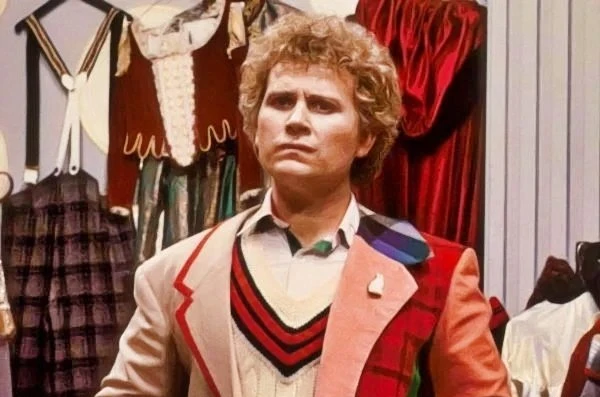
The darker side of the Time Lord is somewhat contrasted with his chosen clothing. It is reported that Colin Baker initially did not like the “explosion in a rainbow factory” coat and wanted something darker to reflect his Doctor’s personality. Of course, he was right. Costume is important – and indeed his incarnation of the Time Lord is darker that those which preceded him. However, although this undeniably eccentric, potentially unflattering choice of clothing for the Sixth Doctor may have further turned viewers off the incarnation, looking back the choice is interesting. Whether intentional or not on the producer’s part, the clothing juxtaposes the character’s darker sides. It simply reaffirms that the Doctor is alien, seen through his “alien” tastes. The very fact the Sixth Doctor views this costume as suave and stylish reemphasises the alien nature of the character.
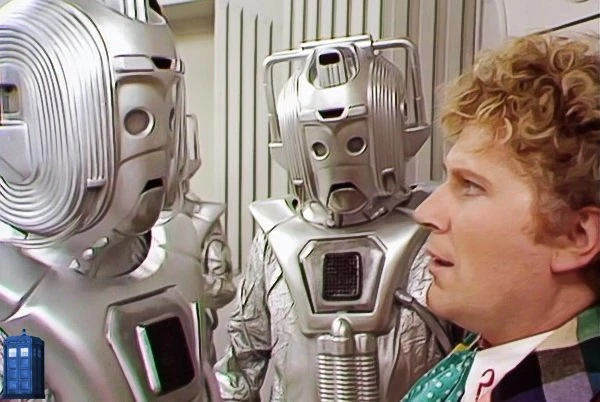
Also admirable is the continuity of the following serial, Attack of the Cybermen. The serial shows the criminal Lytton return, his last appearance being in the Fifth Doctor serial, Resurrection of the Daleks. It is interesting to watch Lytton’s character development. Across seasons and different incarnations of the Doctor, Mr Lytton turns from a selfish criminal who does anything for money into a man working against evil. The series also references the events of The Tenth Planet and contains a set not dissimilar to that seen in The Tomb of the Cybermen. This is a nice nod to former events in the Doctor Who canon which long-running fans of the series must surely appreciate. Appreciating continuity can be a difficult thing to get right. Yet, Attack of the Cybermen does not merely provide “fan service” with the references to the past, but an enjoyable story all-round.
However, Season 22 does not just focus on stories that are merely “good fun” but introduces serious topics such as those introduced in Vengeance on Varos. This serial could be interpreted as a warning regarding the values of democracy, the right to vote is presented as essential to a democracy but also as something a dictatorship may exploit. It is also interesting to watch how Sil (Nabil Shaban) and his mining company exploit Varos and its workers, a plot criticising the machinations of extreme capitalism whilst also apparently acknowledging the plight of hungry workers living in an extreme Socialist Orwellian dystopia where “doublethink” and “thoughtcrime” were prevalent. Surely, Colin Baker’s time as Doctor cannot be dismissed and has earned its place within Doctor Who canon.
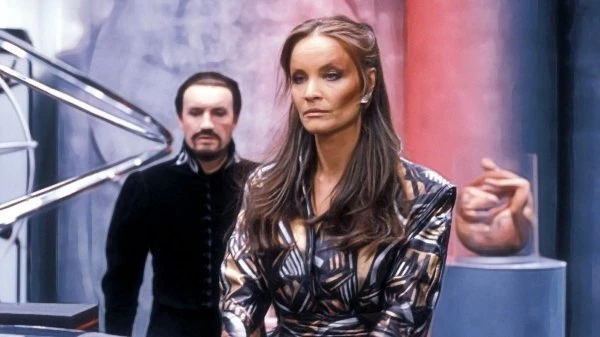
Further, the new characters introduced in Season 22 are enjoyable. It is hard not to enjoy the interaction between the Master (Anthony Ainley), the Rani (Kate O’Mara), and the Doctor in The Mark of the Rani. The Rani is an incredibly written character who is more than a match for the intelligence of the Doctor. It is interesting to see a Time Lord character who is somewhat amoral. Thus far in Doctor Who, there appears an apparent Time Lord binary – the good (the Doctor), and the evil (Omega, Rassilon, and the Master). The Rani is undoubtedly bad but is not necessarily evil. Her view that human beings are “walking chemicals” and her resultant actions add another dimension to what sort of renegade Time Lords are travelling the universe. As an intelligent chemist and physicist, the Rani is an incredible match for the Doctor. The serial also contains subtle humour, a wholesome jokey relationship between Doctor and Companion, and even a chase involving Peri pushing the Doctor strapped to a table – comparable to the “worst rescue ever!” that the Tenth Doctor found himself part of in The End of Time – Part 2 (a much-loved moment).
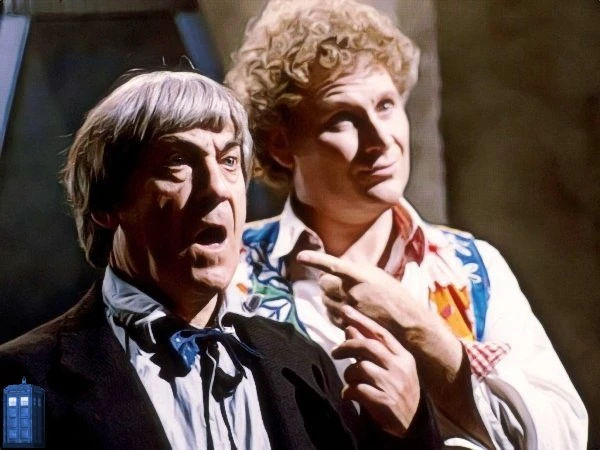
The Two Doctors is yet another example of success in Season 22. The show thrived with Colin Baker and Patrick Troughton in the same story, and it appears to be written with a real sensitivity to the past. The Sixth Doctor and the Second Doctor work brilliantly together, there are some funny moments and some serious ones. It is also incredible to see Jamie McCrimmon (Frazer Hines) return to the series as a much-loved companion. This was a great concept that was well executed; it was especially nice to see a multi-doctor story outside of an anniversary special. In addition to this, Revelation of the Daleks (the final serial of Season 22) is a renowned classic and shows Colin Baker’s Doctor at his very best. Impressively, the serial also introduces the ongoing plot featuring the Dalek civil war between the so-called renegade and imperial Daleks – an interesting concept that pitches the Daleks against each other in civil war. Therefore, it is sensible to conclude that the Sixth Doctor era was written with the future in mind, written well, and with care as regards continuity – even across seasons and Doctors.
Essentially, Colin Baker’s first season as the Doctor is brilliant. There may be some critique of his debut story, but the stories that follow are true classics. The writing is secure, entertaining, and exceptionally performed by Colin Baker and Nicola Bryant. The reputation of the era, however, was somewhat damaged by the Trial of a Time Lord (Season 23). The next section of this article will show that Season 23 is not as bad as its reputation may imply and show just how damaging the BBC’s attitude was to the Colin Baker era of the show and the Sixth Doctor’s reputation.
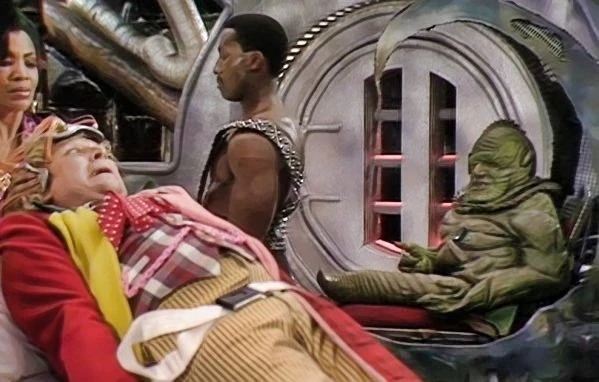
Season 23, otherwise known as Trial of a Time Lord, initially appears as to be a good idea. A series long arc which features the good-hearted, yet meddlesome, Time Lord put on trial for breaking his own people’s laws on time. Rather than merely recapping the events of Doctor Who serials from 1963 to 1986 as some other series may have been tempted to do, the Trial of a Time Lord series is to be praised for creating new stories which were to be used as “evidence” against the Sixth Doctor. In fact, this trial harks back to the 1969 story, The War Games, where the Second Doctor is forced to regenerate and become stranded on Earth due to his perceived “meddling”.
The series is also to be praised for bringing back the character of Sil in the Mindwarp story of Season 23 to further expand on the anti-Capitalist storylines seen in Season 22 as well as an interesting discussion regarding the perceived rights of the privileged (seen where Sil’s superior, Lord Kiv (Christopher Ryan), believes it is his earned right to end another being’s life to prolong his own). Some have also argued that season-long arcs simply do not work – particularly after the mixed reviews that Doctor Who: Flux (Series 13) has received. However, The Key to Time (Season 16) succeeded in its aim during the classic era of the show. In addition, the revival series of the show has thrived with series-long arcs (including the Bad Wolf series arc, the Harold Saxon arc, and the Silence arc).
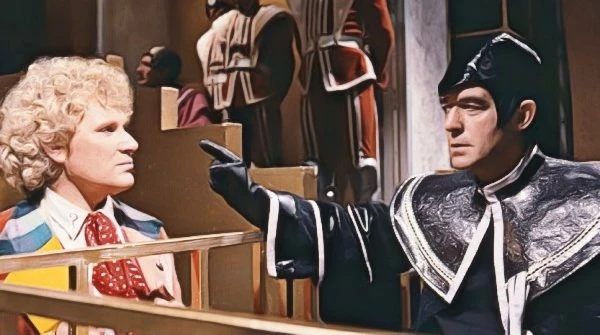
In addition, Baker’s performance is truly incredible. The Doctor’s agitation and frustration is clear when watching the courtroom scenes. In addition, his speeches (most notably the one denouncing the so-called justice of the oldest civilisation, the Time Lords) were remarkably written and even more remarkably performed. Anyone who doubts whether Colin Baker deserved the role would surely realise his performance is amongst the best ever seen in the history of Doctor Who. His character sits in the courtroom, seemingly incongruent in his rainbow outfit up against the grandeur of Time Lord robes. We fear for the Doctor’s safety in the courtroom, and the Valeyard (Michael Jayston) frequently appears to have the upper hand against the Doctor. And yet, we support the Doctor. When fighting a war of words with his own race to save his life and show his actions have saved many people and planets, the Doctor is surely as heroic as he has ever been.
Season 23 is particularly remarkable for the fact it takes place in a courtroom across the whole story. However, there is one consistently annoying feature of Season 23. As the viewer begins to engage with the story, we are returned to the courtroom to hear an outburst of protestations from the Doctor or the Valeyard which is usually frustratingly dismissed by the Inquisitor (Lynda Bellingham). The courtroom is an interesting setting where we see the Doctor vulnerable; it is also a place where we get to know more about Time Lord justice. Lynda Bellingham’s performance compliments that of Colin Baker’s and Michael Jayston’s. However, the constant returns to the courtroom during serials which are interesting in their own right is frustrating. This is something many appear to be frustrated about, with some edits of the series removing the courtroom scenes so the episodes can be enjoyed uninterrupted. Rather than editing them out, however, perhaps it would have been more effective to start and end each episode of Season 23 with a courtroom scene. This would have made all the difference in terms of easy viewing.
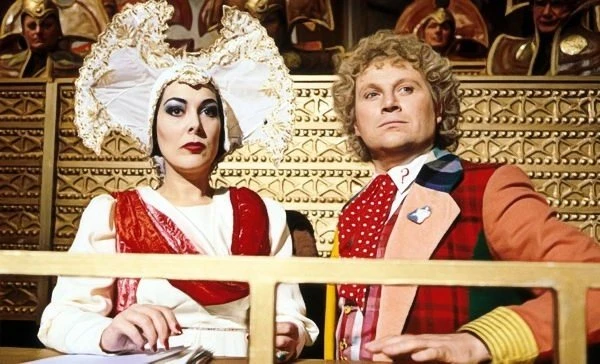
Further, as briefly mentioned, the Valeyard is a good and worthy enemy of the Doctor. Michael Jayston’s performance is admirable; his seething, subtle cruelty and anger is juxtaposed against the righteous frustration and exasperation of the Sixth Doctor, tired of being critiqued by his own race. In fact, regardless of the real identity of this character, it is evident that the Valeyard deserves a place alongside the Master, the Rani and Rassilon in the evil Time Lord “hall of fame”. Regarding the identity of the Valeyard, the writing is ambiguous. This may, of course, be intended to add an air of mystery to the Season. Unfortunately, it is not entirely successful – if the Valeyard is an incarnation of the Doctor shortly before he runs out of regenerations, why do we not see this dark Doctor return pre-2013 (when the Doctor runs out of regenerations in The Time of the Doctor)? Perhaps he is a manifestation of the darker parts of the Doctor – in the same way the Dream Lord is in Amy’s Choice. Perhaps he is an incarnation of the Master. Perhaps he is just a Time Lord with a grudge. We do not find out. For those concerned with the validity of canon, which accounts for many fans, the lack of information about the Valeyard post-1986 amounts to a retcon of the character – but this is a view that surely does not affect the actual viewing of the Trial of a Time Lord series and is something of concern for the post-2005 series of the show in particular (although it is somewhat frustrating nonetheless!).
In summary, this article should have shown that the faults experienced by the Colin Baker era of the show were not the fault of Colin Baker’s incredible performance, his companions, his adversaries, or, indeed, his technicolour costume. Unfortunately, it appears the BBC were starting down the path to axe Doctor Who many years before it came to an end in 1989. 1980s television was infamous for dodgy sets, bad computer effects and scripts that were created at haste. In fact, these very issues were satirised by Victoria Wood’s Acorn Antiques which showed how many dramas and soap operas of the era were filmed on incredibly low budgets with shoddy scripts. Doctor Who was no exception to this rule and was something the show dealt with from its beginnings in 1963 up until 1989 before the huge cash injections into the franchise for the 1996 TV Movie and the 2005 reboot. A viewer should not allow the perceived reputation of this era to cloud their judgement, and any viewer would be wise to remember the rather negative views of Michael Grade (former director of the BBC) towards the show at that time and the hiatus he imposed on the show.
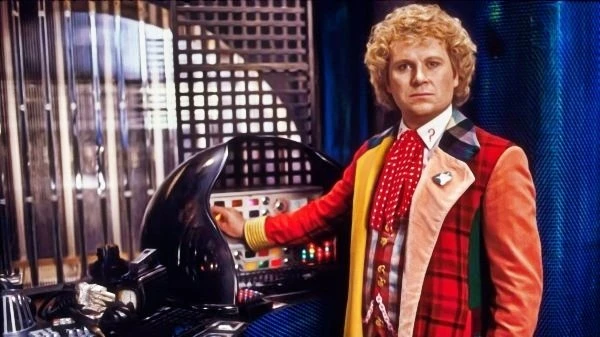
Yes, there were some issues caused by people from the very top of the BBC who seemed determined to pin the blame on Colin Baker and put the show on a permanent hiatus. Luckily, they did not succeed. This era was truly incredible for what it did; enjoyable, yet politically and socially aware pieces of work. Colin Baker’s performance was incredible and epitomised the character of the Doctor; an eccentric alien being who does have a different culture and way of dealing with things. Here, we had a young actor playing the part of a centuries-old alien being admirably, professionally, with due sensitivity and competence. And it worked brilliantly.
Joshua Nicholson 2022


